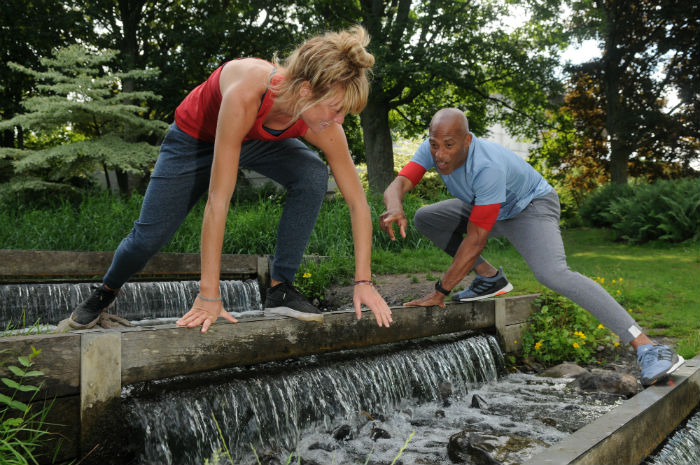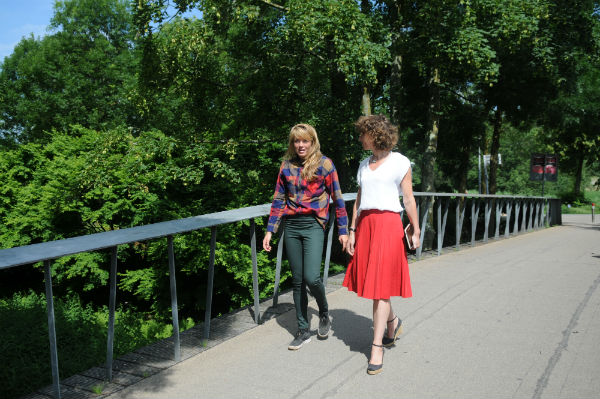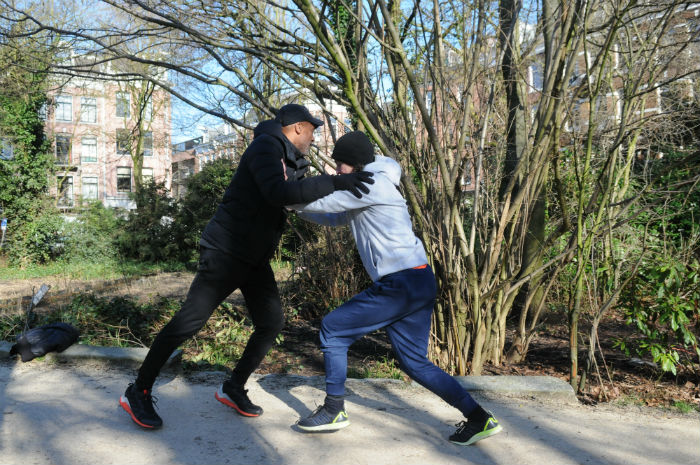Burnout prevention
People who have a big sense of responsibility and who lean towards perfectionism sometimes tend to work too hard and too long. This is a type of imbalance that can have serious consequences and it’s highly important to recognize and tackle this.
Goals of the workshop:
Learn to recognize the influence your thoughts have on your behaviour and feelings, and learn to manage to balance them on a physical, emotional, mental and energetic level.
Content:
- Figure out where this stress comes from and what the triggers are.
- The integration of self-care at work and private life; monitoring your own wellbeing as a powerful preventative tool.
- Attitude and behaviour to arm yourself against stress.
- Prioritize.
- Accepting finality.
- Focus, concentration and determination.
Through a presentation and physical exercises found in top sports you will learn to set boundaries, feel strong and increase your resilience. The signs and prevention of burnout will be extensively addressed as well.


Working Together
Working together successfully depends on the right mindset. Starting points are respecting others and yourself, to believe in complementary talents and learn to give and receive trust.
Goals of the workshop:
Working together efficiently and productively, and to use the qualities of each team member.
Content:
- The system vs the individual.
- Recognizing roles within a team.
- Giving and receiving feedback
- Practical exercises with insights.
- Physical exercises in which working together is the main focus.
This will be worked on during the workshop through ingenious physical training and exercises.
Communication
Communication is the basis of organisation. We live and work together and we all like to be understood. It’s nice to just sense each other but it doesn’t always happen automatically. Sometimes we get ‘lost in translation’.
Goals of the workshop:
- Connect the internal and external world through clear communication.
- Recognize and use communication styles.
- Communicate effectively in different settings and relationships.
Content:
- Set goals before a meeting.
- Behaviour as a means to obtain understanding.
- Use of your own personal style and natural qualities.
- Become aware of the effects of mutual impression.
- Communicate effectively through non-verbal (body language) and verbal communication, assumptions, patterns and habits and presumptions.
The workshop offers practical tools through concrete examples.


Setting Boundaries
Standing up for yourself is an important theme for kids these days but funnily enough this subject is taboo when it comes to adults. How do I keep up at my high pressure job? How do I deal with a dominant colleague? How do I get my ideas across during this weekly meeting?
Goals of the workshop:
Learn to set and accept boundaries.
Content:
- How do I stay close to myself when I feel dominated by people who are (or seem to be) physically or verbally stronger than me?
- Practise with different situations that challenge this theme.
- Learn to understand yourself better.
- Insight into other people’s behaviour.
- Self acceptance, defense and peace.
This workshop focuses on physical exercises aimed on self defense and reflection.